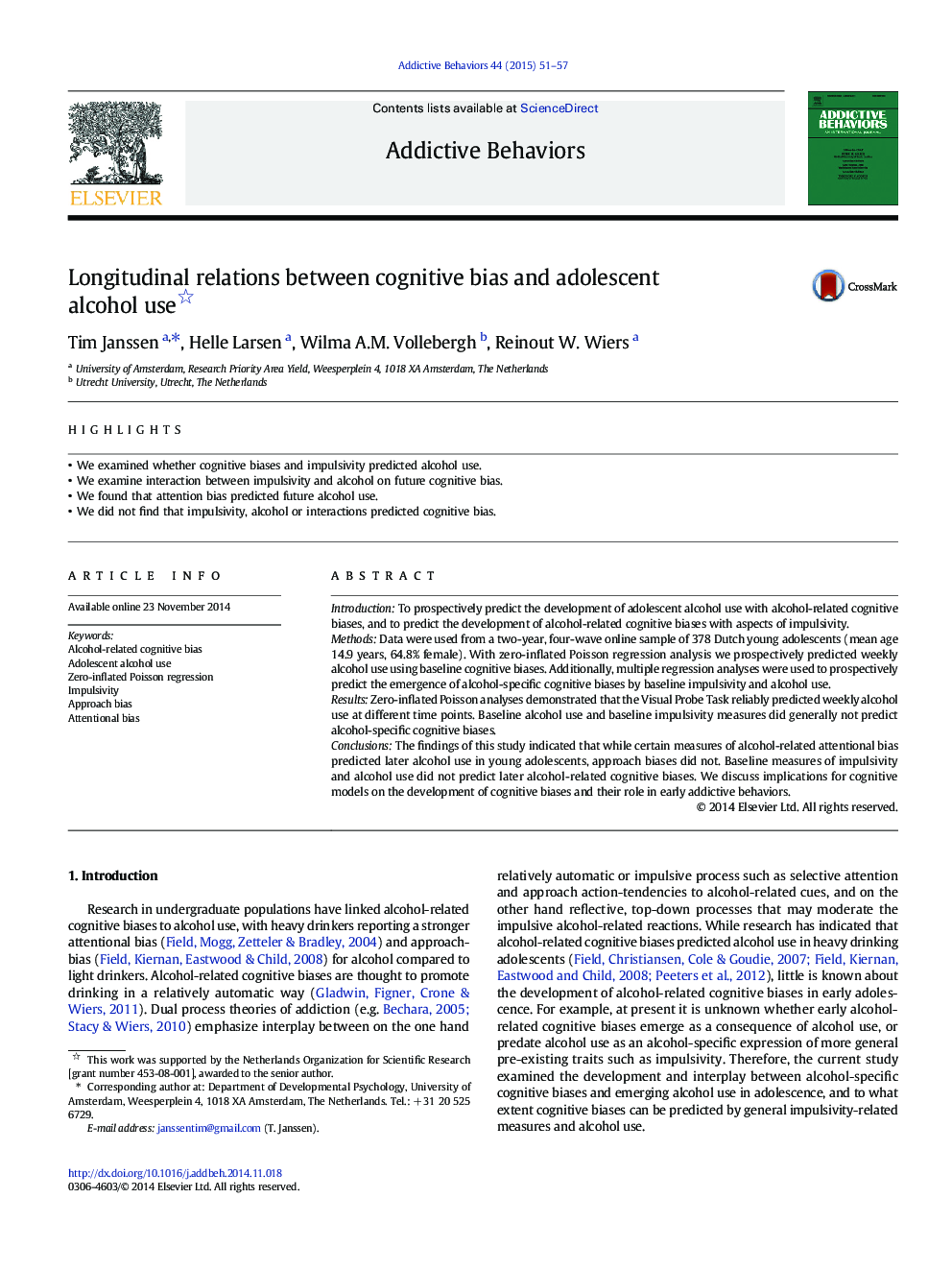| Article ID | Journal | Published Year | Pages | File Type |
|---|---|---|---|---|
| 898704 | Addictive Behaviors | 2015 | 7 Pages |
•We examined whether cognitive biases and impulsivity predicted alcohol use.•We examine interaction between impulsivity and alcohol on future cognitive bias.•We found that attention bias predicted future alcohol use.•We did not find that impulsivity, alcohol or interactions predicted cognitive bias.
IntroductionTo prospectively predict the development of adolescent alcohol use with alcohol-related cognitive biases, and to predict the development of alcohol-related cognitive biases with aspects of impulsivity.MethodsData were used from a two-year, four-wave online sample of 378 Dutch young adolescents (mean age 14.9 years, 64.8% female). With zero-inflated Poisson regression analysis we prospectively predicted weekly alcohol use using baseline cognitive biases. Additionally, multiple regression analyses were used to prospectively predict the emergence of alcohol-specific cognitive biases by baseline impulsivity and alcohol use.ResultsZero-inflated Poisson analyses demonstrated that the Visual Probe Task reliably predicted weekly alcohol use at different time points. Baseline alcohol use and baseline impulsivity measures did generally not predict alcohol-specific cognitive biases.ConclusionsThe findings of this study indicated that while certain measures of alcohol-related attentional bias predicted later alcohol use in young adolescents, approach biases did not. Baseline measures of impulsivity and alcohol use did not predict later alcohol-related cognitive biases. We discuss implications for cognitive models on the development of cognitive biases and their role in early addictive behaviors.
